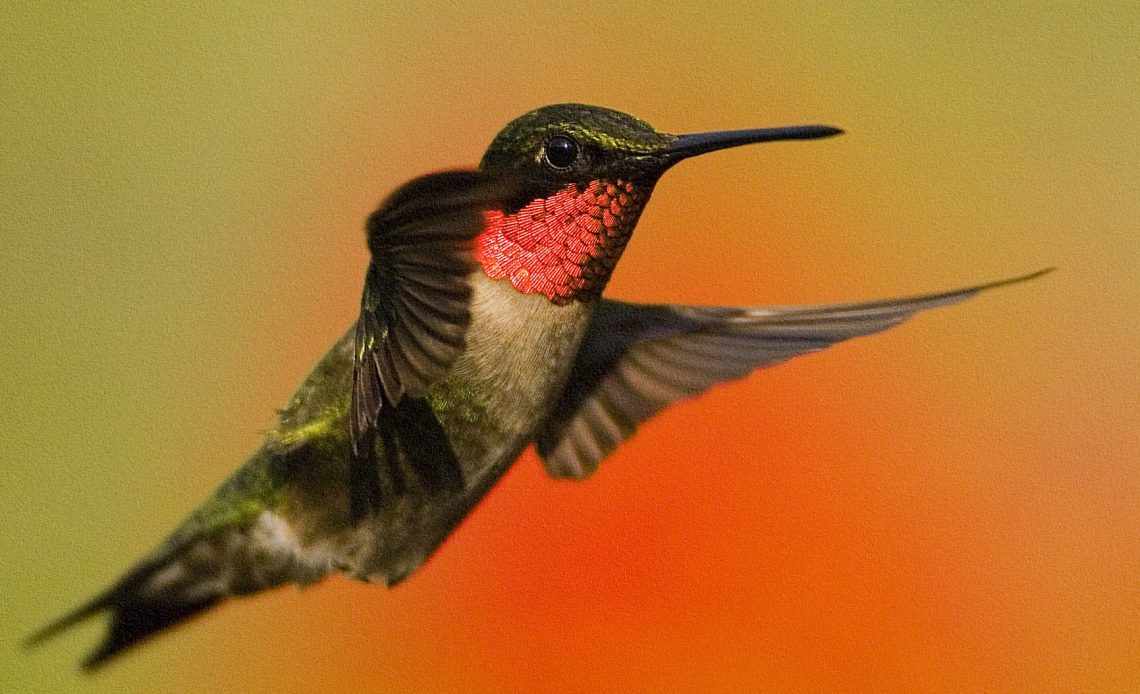

We’re here to help! Wild Yards is a completely free website that is 100% dedicated to helping you create a wildlife-friendly, sustainable yard. Read more
WildYards is reader-supported. When you buy a product through a link on our site, we may earn a comission. Every product is independently selected by our (obsessive) editors and our reviews are unbiased and objective. Read more about our mission or our privacy policy.
Hummingbirds famously seek out natural, sugary nectar from various plants and flowers across our gardens. It’s only natural to wonder if they eat fruit, too, given their sweet allure. For example, do hummingbirds eat oranges?
Hummingbirds happily eat oranges. While they prefer to feed on flowers and eat insects they can snap out of the air, a sweet-smelling orange will always appeal to these pollinators. However, they do not always seek out this fruit as a priority.
Why do hummingbirds eat oranges?
No one’s too sure why hummingbirds eat oranges, though there is plenty of anecdotal evidence suggesting they will readily sip fruit juice if it’s available. For example, many people choose to place chunks of orange and other fruit in hummingbird feeders to help refresh their visiting pollinators.
Hummingbirds likely feed on oranges because they are rich in natural sugars, much like nectar. The hummingbird has an incredible metabolism – which means it needs up to seven calories per day to survive. Translating that into human nutrition, it’s the equivalent of 155,000 calories – around 62 times the recommended daily intake for a grown man! Ergo, the hummingbird will feast on huge quantities of sugar to keep itself from entering a state of torpor.
Orange isn’t a favored color the hummingbird is attracted to – it prefers bolder reds and pinks – but in an available feeder, even slightly off-date oranges will provide a welcome drink. You may also wish to offer pears and apples, too.
Are oranges good for hummingbirds?
While the hummingbird’s diet is ideally composed of nectar and insect meal, for the most part, there are nutrients in oranges and other fruit crucial for a healthy bird. For example, beyond naturally-occurring sugars, oranges are rich in dietary fiber, which – as with humans – can help them to digest easier.
Perhaps surprisingly, oranges are rich in protein, too. For every 100g of orange, you can expect just short of 1g protein. Again, as with humans, protein is crucial for developing muscle and generating healthy energy in birds – and hummingbirds can’t rely on flower nectar alone to provide this resource. Hummingbirds will eat aphids, mosquitoes, ants, and more to supplement their flower feeding.
What do hummingbirds like to eat the most?
Hummingbirds prefer a diet dependent on nectar from various flowers – such as fuchsias, snapdragons, sunflowers, lantanas, and morning glories. The brighter the flower, the better – and they show a preference for trumpet-shaped flowers as they are easier to probe their beaks into and drink from. As oranges aren’t as obviously easy to dip into, it’s likely the hummingbird will choose a bold bloom as a priority.
Hummingbirds will also eat flying and even grounded insects that happen to get in their way. These may include ants, for example, that crawl around their favorite plants – and oranges, too. Hummingbirds won’t hunt for ants, though they compete for the same food in the garden and wild – meaning it pays for the bird to pick the insect off. Sadly for our winged friends, ants replicate enormously.
The hummingbird is an opportunistic, omnivorous feeder. Given their intensive calorie demand and their almost constant state of flying, they will pick and probe at food sources as and when they arise. It’s a good reason why soft, sugary fruits such as oranges work so well in hummingbird feeders. These pollinators won’t normally go hunting for orange trees outright, meaning the occasional orange segment or two in an available feeder makes a welcome treat.
Can I feed hummingbirds fruit?
You can feed hummingbirds fruit and expect a welcome reception – but, as with all treats, be sure to offer oranges in moderation. It’s healthier for hummingbirds to feed on what they can readily find in the wild – which is why many people make their own nectar or sugar water in feeders.
It’s never a good idea to serve fruit laced with any artificial colorings or flavors. Wild animals such as hummingbirds can’t digest food or liquid that contains sugars created in the lab. Natural sucrose, glucose, and fructose are the sources hummingbirds will find in plants across your garden, meaning it’s safest to keep to these types.
The best things to feed your hummingbird are, unsurprisingly, plant nectar, or if not, your own blend. Many wild yard owners use a mix of one part refined, white sugar to four parts water. You’ll need to boil this mix off and cool before giving it to your garden birds.
Hummingbirds love oranges – they’re sugary, easy to drink from, and may actually provide pollinators with nutrients they need. For the most balanced diet, offer occasional fruit in a feeder while growing flowers hummingbirds love. Attracting hummingbirds to your garden should always start with the flowers you grow, too.

Good Morning,
Great article. Don’t understand quite how to feed the hummingbirds oranges. Is it as simple as placing a sliced orange nearby or are you suggesting putting a piece of orange in their homemade nectar? It’s amazing that the bird feeder located within the orange trees gets used by more hummingbirds than all the other six. The trees have yet to bloom for the season so I thought it was due to the security of the area and the shade.
Hi Sherry,
You can try both! In my experience, hummingbirds appreciate an orange cut in half that they can stick their beaks into to extract some sugary orange juice.
Check out this video here:
https://youtu.be/r1C-b3Hj7EU